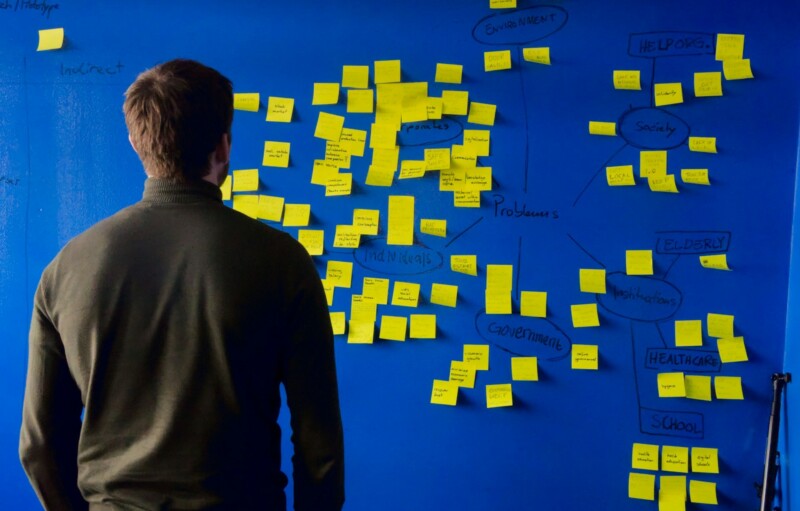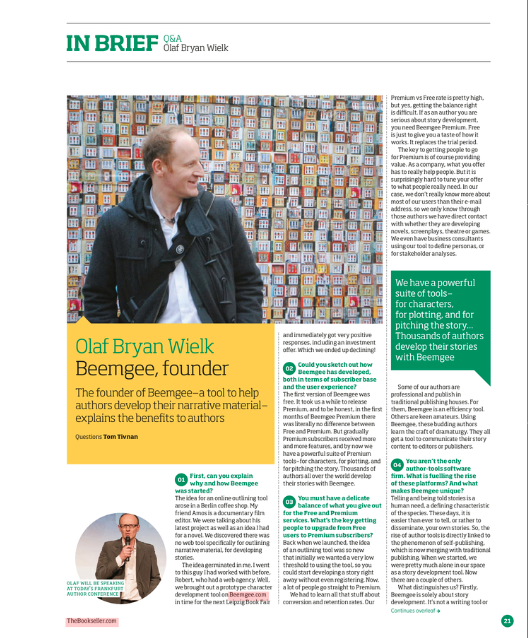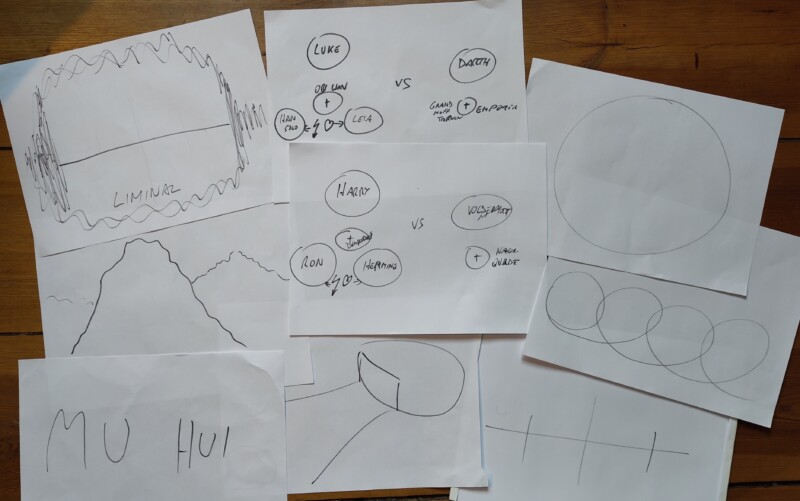The stories we tell each other collectively – sorting out the meanings of the word “narrative”, we find the fiction behind the fact.

Some words are so big that they become meaningless.
Let’s put that more precisely: Some terms are used so generally that their denotations are harder to pinpoint than people who use or people who hear such words may realize. Try to define exactly what “freedom” means, or “democracy”.
Out of the field that concerns us here, at least two terms have reached this general ‘buzzword’ status: “storytelling” and “narrative”.
There are professions and there are fields of study trying to get to grips with storytelling and narrative, for instance the profession of dramaturg or the theoretical approaches of narratology.
- Dramaturgy is defined as the craft, art, or the practice and techniques of dramatic composition or theatrical representation, where composition refers to the way in which the various parts are put together and arranged. In other words, structure.
- Narratology is defined as the study of structure in narratives or the study of narrative and narrative structure, where a narrative is something that is narrated, a representation or description of an event or series of events with the connections between them – that is, of a story.
Especially in American English, there is a second meaning to the word narrative, one that hasn’t made it into the British Collins dictionary yet and only to 2c in the OED, though by now the term is used widely in UK media in the same way as in the States and the rest of the world: “A way of presenting or understanding a situation or series of events that reflects and promotes a particular point of view or set of values“ (Merriam-Webster). In other words, ideology.
In this second definition, the term “point of view” is used generally, not in the technical or dramaturgical sense that a cameraperson or a novelist would use when talking about a scene. In the same way that PoV is a far narrower technical term within storytelling than in general use, so is “narrative” far broader in general use than among authors talking shop. Hence for technical use, we need yet another definition, one that is much more precise than what you find in a general dictionary: (more…)
These are remnants of our sessions at the wonderful Author Conference at the Leipzig Book Fair, LBM24. As you can see, we really can’t draw. Nonetheless we tried to illustrate sophisticated approaches to storytelling such as:
– figural shadowing
– liminal storytelling
– cyclical and rhythmic storytelling
We hope our participants gained some valuable insights!
Click to develop a better story:
In the summer of 2015 in a run-down part of Berlin, three guys made their way to a notary.
They were in the process of founding the company Beemgee GmbH. There was no product yet, but they did share a conviction and a vision: to help writers and storytellers everywhere conceive, develop and outline their stories.
Today we are proud to celebrate five years of Beemgee with a whole host of new features. Premium users can now access a dozen new attributes in the PLOT and PITCH sections of the Beemgee story development tool.
> > NEW PLOT FEATURES
How ever you work, whichever is your favoured process, you can do it in Beemgee.
The additional plot attributes live now are:
- Dramaturgy
- Hero’s Journey (new)
- Hero’s Journey (classic)
- Plot Beats
- Story Anatomy
- Audience’ Journey
(more…)



Five years ago, three guys met at a notary’s office in a rather run-down part of Berlin.
They had decided to found a company, and on this day were making the declaration official – although they had no backing and no product. Why?
The circumstances of each of the three guys were quite different. One was employed, the other already ran his own business, the third had just left his job. Two were techies, one was the content guy, the one with the idea.
Looking back on it, what they had in common was the desire for a sense of purpose. Each of them wanted their working life to follow a vision, rather than a loop.
For let’s face it, most work is repetitive. You end up going through the same motions again and again, whatever they are.
But found your own company and you’re aiming at something. You’re pursuing a vision. You set yourselves goals, milestones. You have an ideal state you wish to achieve. And probably no idea what you’re letting yourself in for.
In short, when you found a company you become the protagonist in your own story. (more…)
Beemgee helps authors develop their narrative material. The founder explains the benefits to authors and publishers.
By Tom Tivnan.
 (more…)
(more…)
See what’s new and track the continuous improvement of the Beemgee storytelling tool in these release notes.
2023
Podcast: The Beemgee Guide to How Stories Work
2022
Performance and security improvements
Payment update (now possible to pay in US Dollar or Euro)
2021
April: Updated system notifications | Improved logic in the global menu
2020
December: Cork board style view of plot event cards | Color picker for plot event cards | Choose to show or hide id and sort order numbers on plot event cards | Improvement of the PDF plot export | Categorisation of the plot attributes into scene info, structure, and process related attributes
June: Improvement ALL STORIES functionality | Layout optimisation of PDF exports | Premium PLOT attributes Dramaturgy, Hero’s Journey (new), Hero’s Journey (classic), Plot Beats, Story Anatomy, Audience’ Journey | Premium STEP OUTLINE attributes Author, Copyright holder | Premium PITCH attributes Genre, Audience, Similar to …, Period setting, Synopsis, Blurb in the STEP OUTLINE section
2019
November: Set Project Permissions (Premium) | Guest mode shows all features
May: Copy projects to create versions or drafts of stories (Premium) | Revised Tour
April: Export .rtf text documents (Premium) | Reorganisation of FREE feature set | Referral function
January: New servers (more…)
Beemgee has come a long way. The features so far:
General
Free –
- FREE registration: Log into your account with your e-mail address and password.
- My Stories: Unlimited number of projects.
- Tour: Turn the guide to Beemgee’s basic functionality on or off at your leisure.
- Context-Sensitive background information on aspects of storytelling | ? |: On-site explanations and advice about each specific aspect of story development.
- “More About …” Buttons: Context-specific links to in-depth articles on each specific aspect of story development.
- Retractable Tool-Bar: Keep your workspace uncluttered by closing the tool-bar.
- Autosave: Project saves automatically after every change.
- Simple-Share: Share your story with your co-author, editor, producer, etc. (Attention: Working on one project simultaneously from several devices may lead to input loss – Beemgee always saves the newest version of the project).
- Work Offline: Continue working on your project even if you lose the internet connection (free features only) – the project will sync when you are back online.
- Language Switch: Use the tool in English or German.
Premium –
- Premium Registration: See and adjust your account and billing information.
- Copy stories to create versions (drafts).
- Permissions: Set a project to private, view-only, or can edit.
- Detail Views: See detail views of character sheets, pot events, and your step outline.
- Export PDFs: Character Sheets, Plot, Step Outline, Project – with selections for narrative/chronology, all attributes or input only, etc.
- Export RTF text files to re-import in writing software for treatments or as manuscript document.
CHARACTER
 (more…)
(more…)
From the point of view of one of the founders.
Hello there,

I’m Olaf. Despite my name, I’m British, but I moved to Berlin in the 90s. Until a couple of years ago I worked for big German publishers. Like (I suspect) many people in publishing, I harbored the secret desire to be an author. Such was my ordinary world.
One day I met my friend Amos for coffee. He is a filmmaker, and we spoke about a movie he was working on as well as the novel I wanted write. We discovered that we knew of no online tools conceived to help authors structure and outline their plots. This was the inciting incident for my own story.
After I had spent a few days ruminating, I noticed that I had a clear idea of what I expected of an outlining tool. So I started researching what was on the market. And I found … nothing. At least nothing that came close to what I saw in my mind’s eye.
So I went to Robert, whom I knew professionally and respected for his integrity and acumen. I told him I was thinking of a web-based software for authors, but that I would only conceive it if he would be my partner.
To my delight, he needed merely a few days to agree. Our journey had begun. (more…)
Welcome to the Beemgee blog.
This blog is about storytelling and story development. We examine how fiction works and what stories really consist of, concentrating especially on plot and character development. Many of the posts are inspired by functions and features of our outlining software. It’s all about the craft of creating stories. (more…)
There is a craft to storytelling.
Much of the craft behind fabulation has to do with structuring the story being told, the construction and organisation of its narrative. Many authors design this construction first, before filling the first page with text. The process of planning how the story works is known as outlining.
There are significant benefits to outlining. For one thing, going through this process usually entails fewer rewrites later. When the author knows the direction of the storyline, it is easier to keep all its threads under control while writing. Without this direction, there is a danger of losing the plot half way through.
Stories have structure. (more…)









